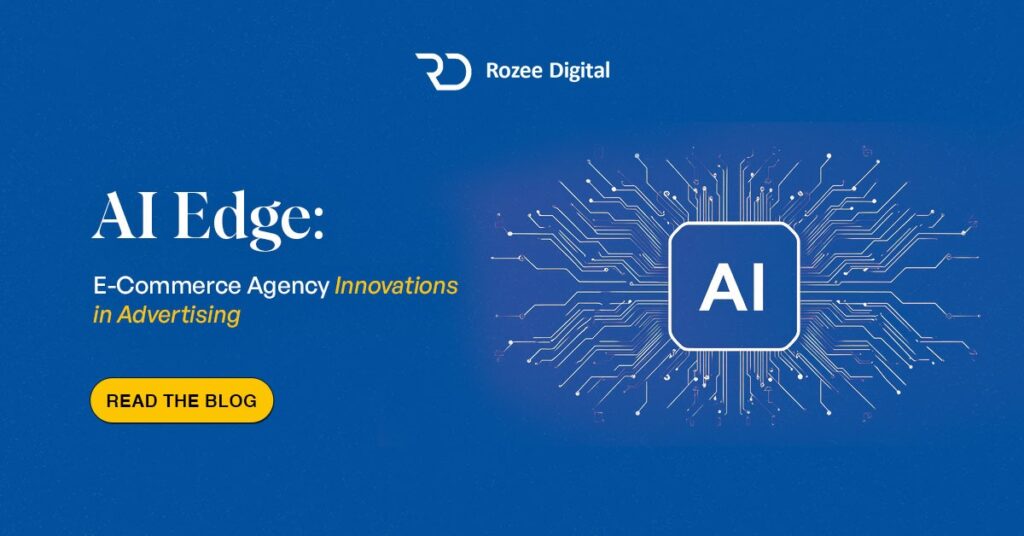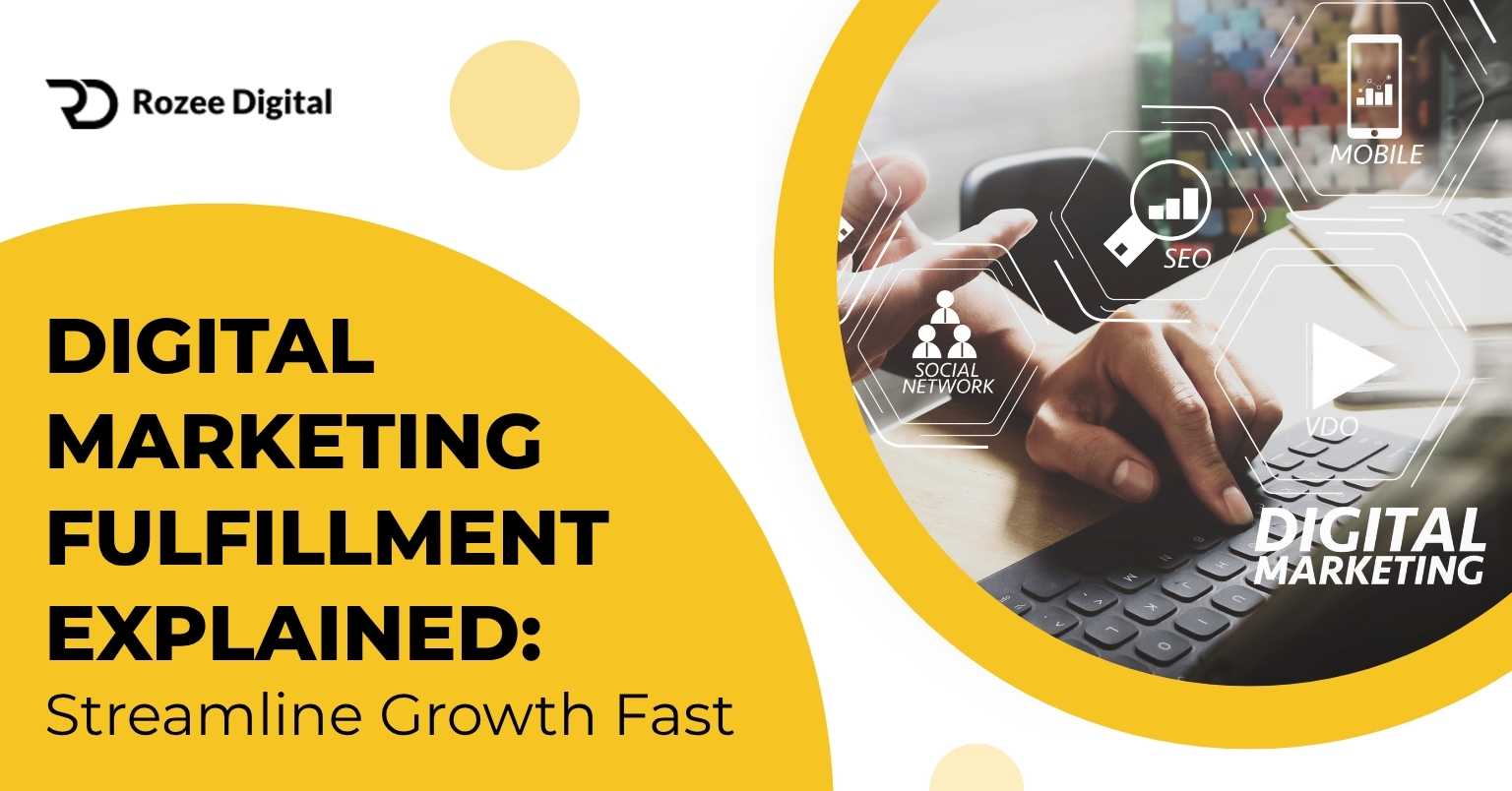Artificial intelligence has become a major topic in the advertising industry, with widespread participation and interest from all sectors. E-commerce agencies are continually exploring new frontiers to enhance their advertising strategies. Agencies are rapidly adopting AI-powered innovations in AI advertising, achieving impressive results by utilizing these tools to enhance efficiency, speed, and cost-effectiveness while delivering superior work for clients. Whether it’s for copywriting, strategy, or AI advertisement production, AI has fundamentally transformed the ad industry in just a few years, with this wave of change showing no signs of slowing down.
The advent of artificial intelligence (AI) has ushered in a transformative era, redefining how businesses approach advertising and how artificial intelligence ads are created and delivered. AI and advertising are leading this digital transformation, acting as a revolutionary force that is fundamentally altering the landscape of online shopping. For e-commerce marketing agencies and marketers, AI advertising is more than just a trend—it’s the gateway to a new era of personalized experiences, predictive insights, and dynamic customer interactions through artificial intelligence ads.
What is Artificial Intelligence Advertising?
Artificial Intelligence advertising refers to the use of AI technologies to automate, optimize, and personalize advertising efforts. AI advertising is revolutionizing the way businesses connect with their audiences. AI advertising utilizes machine learning, data analytics, and predictive modeling to analyze vast amounts of consumer data, enabling brands to deliver the right message to the right person at the right time. This approach not only enhances the effectiveness of AI advertising campaigns but also drives greater engagement, efficiency, and return on investment (ROI). As AI continues to advance, its role in advertising is set to grow, offering innovative solutions that transform how businesses reach and influence their target markets.
This blog post delves into the innovative ways AI is being leveraged by e-commerce marketing agencies to revolutionize advertising.
1. The Rise of Artificial Intelligence in Advertising
In today’s rapidly evolving digital landscape, AI advertising is transforming the way businesses approach marketing. The integration of AI and advertising has enabled brands to harness the power of data-driven insights, revolutionizing how AI ad strategies are developed and executed.
Artificial intelligence advertising has moved from being a buzzword to a critical component of modern marketing strategies. By integrating AI into advertising campaigns, e-commerce agencies are able to analyze vast amounts of data, identify trends, and predict consumer behavior with unprecedented accuracy. This results in more targeted and effective advertising efforts.
Example: AI algorithms can analyze customer purchase history and browsing behavior to create personalized AI advertisements. For instance, an online bookstore can recommend books based on previous purchases, enhancing the customer experience and driving sales.
2. AI-Powered Personalization
Personalization is at the heart of successful advertising, and AI is making it more sophisticated than ever. AI advertising tools can deliver personalized content to individual users based on their unique preferences and behaviors. This level of customization helps in creating a more engaging and relevant advertising experience.
Example: A fashion retailer can use AI to recommend clothing items that match a customer’s style preferences. By analyzing previous purchases and browsing history, AI can tailor ads that feature items the customer is likely to be interested in, leading to higher conversion rates.
3. Dynamic Pricing with AI
Dynamic pricing is another innovation brought about by AI in advertising. AI systems can adjust prices in real-time based on various factors such as demand, competition, and inventory levels. This ensures that e-commerce businesses remain competitive while maximizing their profits.
Example: An electronics retailer can use AI to monitor competitor prices and adjust their own prices accordingly. If a competitor offers a discount on a popular item, the AI system can automatically lower the retailer’s price to attract more customers without compromising on profit margins.
4. Enhanced Customer Service with AI Chatbots
AI chatbots are revolutionizing customer service in e-commerce by providing instant support and assistance. These intelligent bots can handle a wide range of customer queries, from product recommendations to order tracking, enhancing the overall shopping experience.
Example: An e-commerce marketing agency can deploy AI chatbots to assist customers in real-time. If a customer has a question about a product, the chatbot can provide detailed information, suggest related items, and even offer discounts, leading to increased customer satisfaction and sales.
5. Predictive Analytics for Better Ad Campaigns
Predictive analytics is a powerful tool that allows e-commerce marketing agencies to optimize their artificial intelligence advertising campaigns. By analyzing historical data, AI can predict future trends and consumer behavior, enabling businesses to make informed decisions about their marketing strategies.
Example: A travel agency can use predictive analytics to identify emerging travel destinations. With this insight, they can tailor their advertising campaigns to promote these destinations, targeting customers who are likely to be interested, thereby increasing bookings.
6. Creative Ad Generation with AI
AI is also transforming the creative aspect of advertising. AI tools can generate a variety of ad creatives, from text to visuals, based on specific goals and target audiences. This not only speeds up the creative process but also ensures that ads are optimized for performance.
Example: A beauty brand can use AI to create multiple versions of an ad featuring different product images and headlines. The AI system can test these variations in real-time to determine which one performs best, refining the ad strategy for maximum impact.
7. Advanced Targeting with Machine Learning
Machine learning, a subset of AI, enhances ad targeting by identifying complex patterns in consumer behavior. This allows e-commerce marketing agencies to reach more precise audiences, improving the effectiveness of their ad campaigns.
Example: A subscription box service can use machine learning to analyze customer data and identify potential subscribers who have shown interest in similar products. This enables highly targeted AI ads that are more likely to convert leads into customers.
8. Automated Ad Optimization
AI-driven tools are streamlining the ad optimization process by automatically adjusting bids, allocating budgets, and optimizing ad placements based on real-time performance data. This ensures that ad campaigns remain effective and cost-efficient without requiring constant manual intervention.
Example: An e-commerce platform running a pay-per-click (PPC) campaign can use AI to automatically adjust bids based on keyword performance. If certain keywords are generating high-quality leads, the AI system can increase bids for those keywords to maximize their impact.
Risks Associated with Using Artificial Intelligence Advertising
1. Data Privacy Concernsy
AI advertising systems rely heavily on data to function effectively, which raises significant data privacy concerns. Personal information collected from consumers, such as browsing habits, purchase history, and demographic details, must be handled with care. Mismanagement or breaches of this data can lead to serious privacy violations and legal repercussions.
Mitigation: To mitigate these risks, it’s crucial to adhere to stringent data protection regulations, such as GDPR or CCPA, and to implement robust data security measures. Transparency with customers about data usage and obtaining their consent can also help in building trust when using artificial intelligence ads.
2. Potential Biases in AI Algorithms
AI and advertising can inadvertently incorporate biases present in the data they are trained on. This can result in unfair or discriminatory practices, where certain groups of people might be unfairly targeted or excluded. Such biases in advertising artificial intelligence can affect the fairness and inclusivity of your campaigns.
Mitigation: To address this issue, it’s important to regularly audit and monitor AI advertisements for bias. Diverse datasets should be used for training, and algorithms should be designed and tested to ensure fairness. Employing ethical AI frameworks can help in identifying and rectifying biases in artificial intelligence and advertising.
3. Need for Ongoing Maintenance and Updates
Artificial intelligence advertisement systems are not set-and-forget solutions; they require continuous maintenance and updates to remain effective and accurate. This includes updating algorithms to reflect changing market conditions and consumer behaviors, as well as fixing bugs and improving performance.
Mitigation: Working with an e-commerce marketing agency that specializes in AI advertising is crucial. Regularly updating the system and conducting performance evaluations can help in maintaining its effectiveness. Having a dedicated team to oversee advertising artificial intelligence operations ensures that any issues can be promptly addressed, keeping your e-commerce marketing agency campaigns on track.
Benefits of Hiring an AI Marketing Agency
1. Stay Ahead of Trends
One of the most significant advantages of hiring an AI e-commerce marketing agency is the ability to stay ahead of industry trends. The digital marketing landscape is constantly evolving, with new tools, platforms, and consumer behaviors emerging regularly. AI-powered tools can analyze vast amounts of data in real-time, identifying patterns and trends before they become widespread. This allows your business to anticipate market shifts and adapt your marketing strategies proactively, rather than reactively.
Example: An AI marketing agency might use AI to predict the rising popularity of a particular product category based on social media trends, search engine data, and online consumer behavior. This insight enables your business to launch targeted campaigns early, capturing market share before competitors.
2. Increase Operational Efficiency
AI excels at automating repetitive and complex tasks, which can significantly increase your operational efficiency. By outsourcing your marketing to an AI-driven agency, you can streamline processes such as customer segmentation, content creation, and ad placement. AI tools can manage these tasks faster and more accurately than manual efforts, freeing up your team to focus on strategic activities.
Example: AI can automate the process of analyzing customer data and segmenting audiences based on behavior, preferences, and demographics. This allows for more targeted marketing efforts without the need for time-consuming manual analysis.
3. Enhance Customer Engagement
AI-driven insights enable personalized customer interactions, which are crucial for effective marketing. Personalization has been shown to increase customer engagement, satisfaction, and conversion rates. An AI marketing agency can help you create tailored content, recommend products, and deliver personalized offers that resonate with individual customers.
Example: Using AI, an e-commerce company can analyze a customer’s previous purchases and browsing behavior to recommend products that align with their preferences. This personalized approach not only enhances the customer experience but also increases the likelihood of repeat purchases.
4. Drive Data-Driven Decisions
In the era of big data, making informed decisions is critical to business success. AI marketing agencies use sophisticated analytics to interpret large datasets, uncovering actionable insights that drive strategic decision-making. These insights can inform everything from product development to campaign optimization, ensuring your marketing efforts are aligned with consumer needs and market opportunities.
Example: An AI e-commerce marketing agency might analyze customer feedback, sales data, and market trends to determine the optimal pricing strategy for a new product launch. By basing decisions on data rather than intuition, your business can reduce risks and improve outcomes.
5. Achieve Cost-Effective Scalability
Scaling marketing efforts typically requires significant increases in budget and resources. However, with AI, you can scale your campaigns efficiently without proportionate increases in costs. AI tools can handle large volumes of data, optimize campaigns in real-time, and automate repetitive tasks, allowing you to expand your reach and impact without overextending your budget.
Example: An AI marketing agency can manage a large-scale digital ad campaign across multiple platforms, optimizing ad placements, targeting, and budgets automatically. This ensures maximum ROI without the need for a larger marketing team or increased spending.
6. Access Specialized Expertise
AI marketing is a highly specialized field that requires both technical and strategic expertise. By hiring an AI marketing agency, you gain access to professionals who understand the intricacies of AI tools, algorithms, and data analysis. These experts can implement advanced solutions tailored to your specific business needs, ensuring you get the most out of AI technology.
Example: A specialized AI marketing agency can design and deploy a custom machine learning model that predicts customer churn, allowing your business to take proactive steps to retain valuable customers.
7. Monitor and Adjust in Real Time
The ability to monitor and adjust marketing strategies in real-time is a game-changer in today’s fast-paced digital environment. AI tools provide continuous feedback on campaign performance, customer behavior, and market conditions. An AI marketing agency can use this data to make instant adjustments to your campaigns, ensuring they remain effective and responsive to changing circumstances.
Example: If an ad campaign is underperforming, AI can quickly identify the issue—whether it’s targeting, messaging, or timing—and make the necessary adjustments in real-time, optimizing the campaign for better results.
Conclusion
The integration of Artificial intelligence advertising into e-commerce is not just a trend—it’s a fundamental shift that’s driving innovation and efficiency. From personalized ads to dynamic pricing and predictive analytics, AI advertising is empowering e-commerce marketing agencies to deliver more relevant, engaging, and effective advertising solutions. As AI technology continues to advance, we can expect even more groundbreaking innovations in artificial intelligence and advertising that will reshape the future of e-commerce advertising with artificial intelligence ads.
FAQs on AI Edge: E-Commerce Agency Innovations in Advertising
1. What is artificial intelligence advertising?
Artificial intelligence advertising leverages AI technologies to create, manage, and optimize advertising campaigns. By analyzing vast amounts of data, AI can predict consumer behavior, personalize ads, and improve overall campaign performance.
2. How does AI enhance personalization in advertising?
AI enhances personalization by analyzing customer data, such as browsing history, purchase behavior, and preferences. This allows for the creation of highly targeted ads that resonate with individual consumers, increasing engagement and conversion rates.
3. How can AI help with dynamic pricing?
AI can help with dynamic pricing by analyzing various factors like demand, competition, and inventory levels in real-time. This enables e-commerce businesses to adjust prices automatically, ensuring competitiveness and maximizing profits.
4. What role do AI-powered chatbots play in e-commerce?
AI-powered chatbots enhance customer service by providing instant support and assistance. They can handle a wide range of queries, from product recommendations to order tracking, improving the customer experience and freeing up human resources for more complex tasks.
5. How do AI-driven predictive analytics benefit e-commerce advertising?
AI-driven predictive analytics benefit e-commerce advertising by forecasting future trends and consumer behaviors. This allows agencies to make data-driven decisions, optimizing ad campaigns for better performance and higher ROI.
6. Can AI create ad content?
Yes, AI can assist in creating ad content. AI tools can generate text, images, and other creative elements based on specific objectives and target audiences. This speeds up the creative process and ensures ads are optimized for performance.
7. How does AI improve ad targeting?
AI improves ad targeting by identifying complex patterns in consumer behavior that traditional methods might miss. This advanced targeting helps e-commerce agencies reach more precise audiences, enhancing the effectiveness of their ad campaigns.
8. What is automated ad optimization, and how does AI contribute to it?
Automated ad optimization involves using AI to adjust bids, allocate budgets, and optimize ad placements based on real-time performance data. This automation ensures campaigns remain effective and cost-efficient without requiring constant manual intervention.
9. What is the future of AI in e-commerce advertising?
The future of AI in e-commerce advertising looks promising, with continuous advancements driving further innovation. AI will continue to enhance personalization, efficiency, and effectiveness in advertising, helping e-commerce agencies stay competitive in the digital marketplace.




